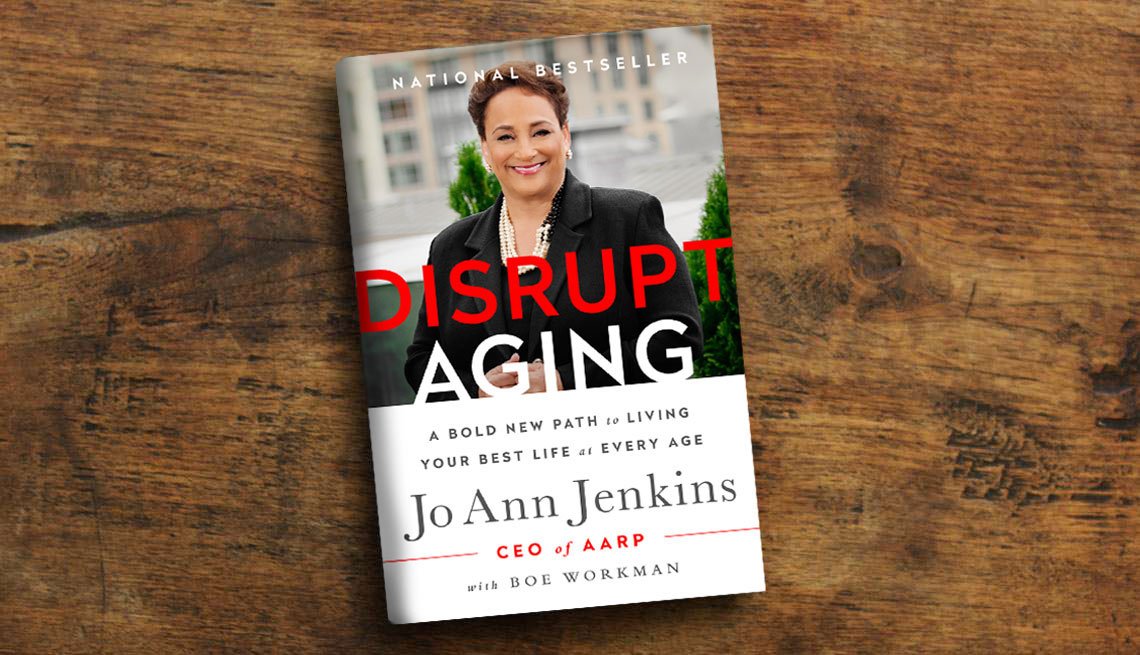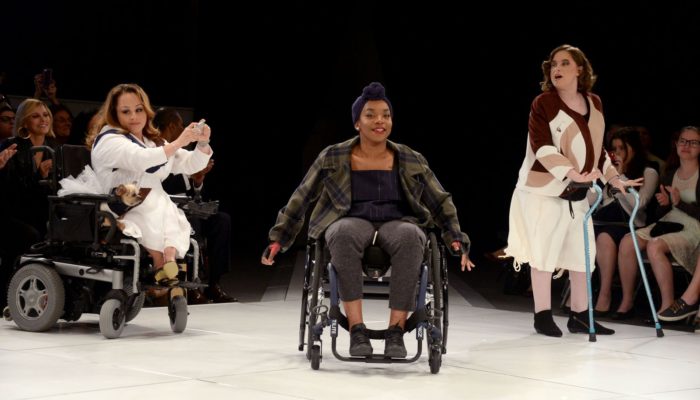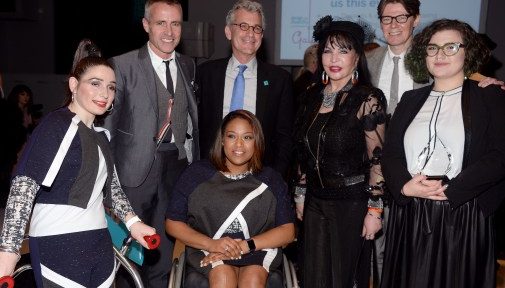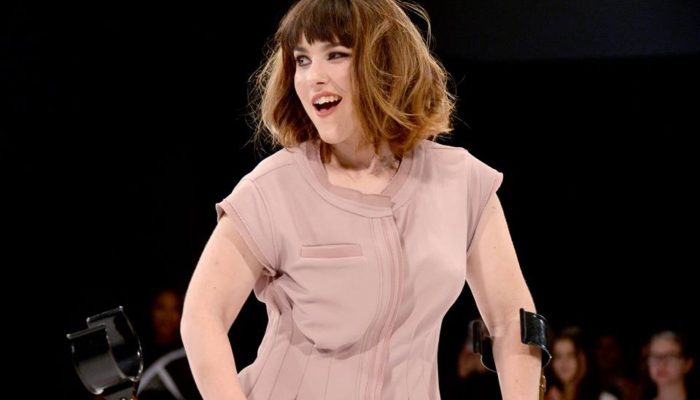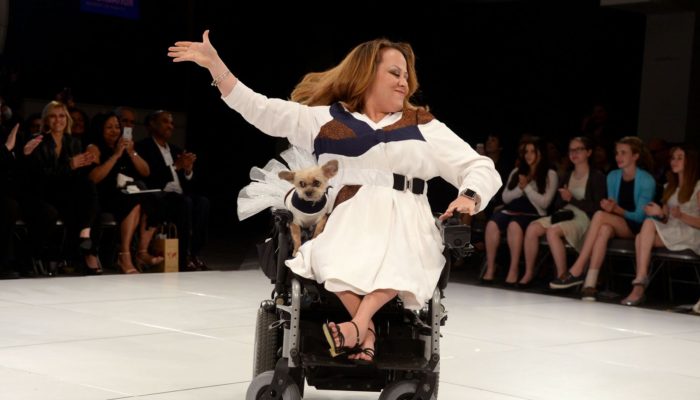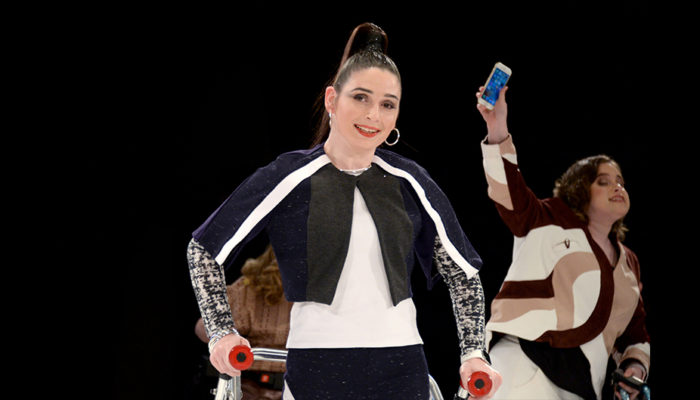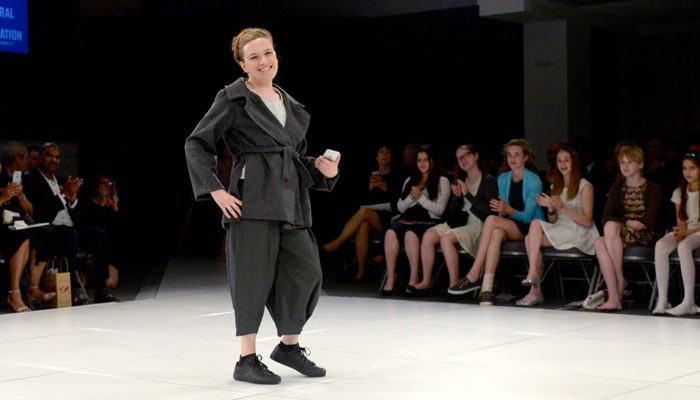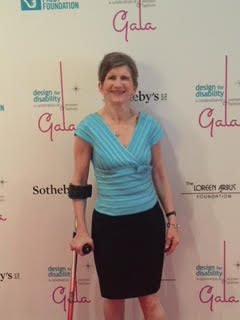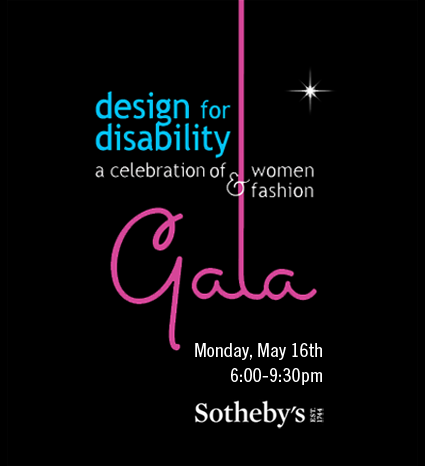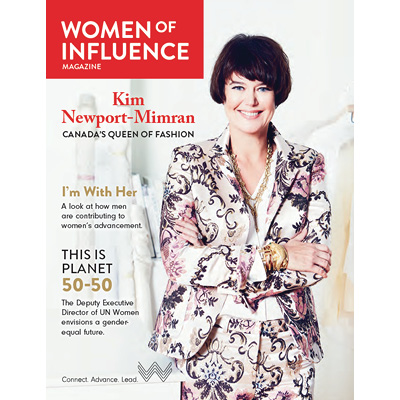 Anne Rader hasn’t let disability slow her down. In fact, she’s helped empower women and others living with disabilities to be economically stable and self-sufficient through her extensive work in American policy and healthcare.
Anne Rader hasn’t let disability slow her down. In fact, she’s helped empower women and others living with disabilities to be economically stable and self-sufficient through her extensive work in American policy and healthcare.
The day Anne Rader turned 14, her mother turned off the television and said to her, “Anne, you need a skill.”
She got a B in her first typing class, and her mother forced her to retake the class until she got an A. Once she got an A, her mother marched her down to the United Way to interview for a job typing up press cards.
As she was leaving the meeting, Anne overheard the hiring manager say he was uncertain about hiring her. Her mother convinced him to give Anne two weeks as a trial. That two weeks turned into four years and that hiring manager became a lifelong mentor.
But it hasn’t always been this easy. As a woman living with a disability—Anne was born with Cerebral Palsy—she finds it challenging to get people to see beyond her disability to the extensive experience she’s garnered in the fields of healthcare and public policy in the United States.
“It’s about ability,” she says, explaining her career success. “We can do anything we want to do.”
She credits her mother Diane for imparting on her, determination and a can-do attitude. A PhD in Education, Diane consistently told her daughter: “Anne, you can do anything you want to do. You’re always going to have to work harder, but you can do anything you want.”
It’s an attitude that’s stuck with Anne throughout her career navigating the American healthcare system, advocating for people with disabilities, and speaking publicly on healthcare policy and organizational impact.
While the American healthcare industry can be challenging, challenge isn’t something Anne is afraid of.
People have different perspectives of what challenge is. As many times as I want to give up, I can’t, because it’s just not in me,” she says. “People will tell you all your life that you can’t do things, but you have to surpass people’s expectations, because they’re generally too low.
One of seven siblings, Anne grew up in Wisconsin and earned a Bachelor of Arts degree in Political Science from Marquette University in Milwaukee. Upon graduation, she moved to Washington D.C. “as a starry-eyed 20-something straight out of college, thinking [she] could change the world.” She hasn’t looked back since.
Anne started her career at Susan Davis International, a boutique public relations firm, where she assisted with the design and implementation of public policy and outreach strategies on healthcare issues, engaging legislative, industry, and community leaders in the development and implementation of Federal health policies. She quickly became passionate about improving healthcare, especially those most vulnerable and at-risk. As a woman living with a disability, Anne knew that quality, affordable healthcare was key to anyone’s personal and professional success.
After four years with that firm, Anne had the privilege of working as a Special Advisor to the Secretary of State for the U.S. Department of Labor, Elizabeth Dole. Ms. Dole became more than just a boss and a mentor—she strongly influenced Anne’s decision to follow her passion and make a difference for others, particularly for women with disabilities.
Anne went on to become part of the healthcare team at Cassidy & Associates, a leading public affairs firm in Washington, DC where she was instrumental in helping hospitals expand their ability to transform healthcare and provide state-of-the art care for diverse populations. It was then Anne realized she could make a real difference in the healthcare industry.
With healthcare and public policy experience under her belt, Anne recognized that she needed a specific skill set in order to advance her career further. To help forge her way deeper into the world of policy and healthcare, she entered the Master in Public Administration (MPA) Program at the John F. Kennedy School of Government at Harvard University.
Straight out of grad school, Anne started working at Fannie Mae, and spent seven years there working on housing and community development initiatives to promote affordable housing for underserved communities. She focused passionately on empowering women, people with disabilities, and senior citizens to achieve homeownership and economic self-sufficiency, something Anne says is a major factor for the success of the American economy.
Among many other career accolades, like working as Assistant Vice President for a New York City non-profit management consulting firm, and as an Associate with Booz Allen Hamilton, Anne also had a seat as a board member of the National Council on Disability. She was appointed to the Council by the White House in 2003 and served as Chair of the Healthcare Team. Today, as part of the Council, she was responsible for leading a study on healthcare for people with disabilities.
Because Anne was born with what she describes as mild cerebral palsy and later, unrelated, acquired MS, she spent a great deal of time in hospitals as a patient. “As an adult, you get to see how [the hospitals] operate; you see how important the work they do is.” Anne says her disability was a major factor in inspiring her interest in healthcare.
To this day, her own experiences make her a better and more credible advocate for the causes she champions. “Currently, I’m working with the Women’s Health Initiative as part of the Cerebral Palsy Foundation (CPF),” she says. This collaborative network of nationally renowned medical institutions is working alongside CPF to identify the barriers to better healthcare for women with disabilities and begin to develop and implement new approaches.
In her work advocating for the health needs of at-risk and vulnerable populations, Anne has had the opportunity to focus on a number of issues including access to quality care, public housing, and resources.
To me, technology and education are great equalizers,” Anne says. And while access tends to be limited to those with financial means, she’s committed to addressing this issue.
Anne herself has benefited greatly from the advancement of adaptive devices and technology. So much so that she now skis black diamond trails at Vail Mountain in Colorado—something she certainly wasn’t able to do as a child.
Despite her proven track record, Anne says she’s still often seen as a “nice woman” or an “inspirational woman” with a disability who is working and earning a living. But that’s not what she wants to be seen as. “I hope that in each of my positions I’ve had the opportunity to show people that a woman with disabilities can be successful, that she can do whatever she wants and have a huge impact while doing that. I want people to look at me and think Anne is a tough cookie. She makes things happen.”
– by Meghan Jeffery
Women of Influence is an international inspirational resource for professional women aspiring to the C-suite.This quarterly publication is a blueprint for success covering the issues relevant to us throughout our careers—whether we’re just starting out, or we’re experienced executives. For entrepreneurs, or those pursuing dominance in the public sector, professional services, health, NGOs and more, every issue offers actionable insights from ambitious, accomplished women across the country and around the world.
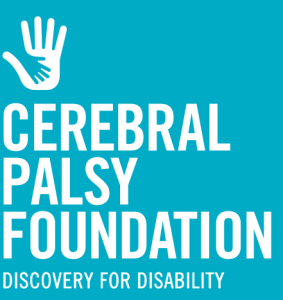 This week, I participated in the second phase of “Transforming the Healthcare of Women with Disabilities” to discuss the implementation and outcomes of the four pilot projects designed in Phase I to improve gynecological, mammography and breast care for women with disabilities. The Cerebral Palsy Foundation (CPF), through its Women’s Health Initiative, is leading a multi-part project: survey of women and health care providers regarding obstetrical, gynecological, and breast care for women with disabilities; review and analysis of survey data by representative stakeholders at a first workshop; and finally, review of the pilot research results and design of prospective patient-centered research at a second workshop. I was honored to be among such an accomplished group of women leaders in health and disability to provide input to the effective implementation and marketing of the pilot projects at four leading hospitals. We spent two days engaging with national policy leaders and physicians, practioners, and patient advocates from the leading pilot partners: The Weinberg Family Cerebral Palsy Center at Columbia University Medical Center, The Complex Care Service at Harvard’s Boston Children’s Hospital, The Rehabilitation Institute of Chicago and Northwestern University and The Center for Cerebral Palsy at the UCLA Medical Center.
This week, I participated in the second phase of “Transforming the Healthcare of Women with Disabilities” to discuss the implementation and outcomes of the four pilot projects designed in Phase I to improve gynecological, mammography and breast care for women with disabilities. The Cerebral Palsy Foundation (CPF), through its Women’s Health Initiative, is leading a multi-part project: survey of women and health care providers regarding obstetrical, gynecological, and breast care for women with disabilities; review and analysis of survey data by representative stakeholders at a first workshop; and finally, review of the pilot research results and design of prospective patient-centered research at a second workshop. I was honored to be among such an accomplished group of women leaders in health and disability to provide input to the effective implementation and marketing of the pilot projects at four leading hospitals. We spent two days engaging with national policy leaders and physicians, practioners, and patient advocates from the leading pilot partners: The Weinberg Family Cerebral Palsy Center at Columbia University Medical Center, The Complex Care Service at Harvard’s Boston Children’s Hospital, The Rehabilitation Institute of Chicago and Northwestern University and The Center for Cerebral Palsy at the UCLA Medical Center.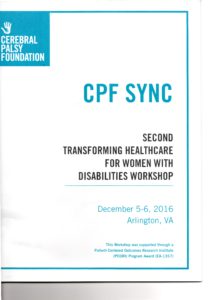


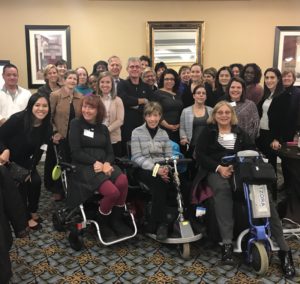

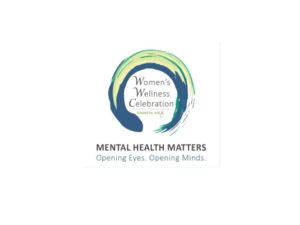
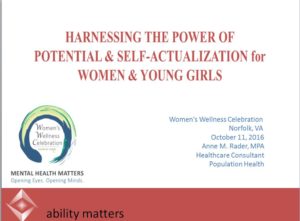
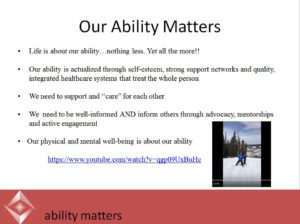
 xactly new to neurology. For years, neurologists say, they have had to manage comorbidities of patients with chronic conditions such as epilepsy and multiple sclerosis, coordinating preventive services and acute and end-of-life care — and communicating all aspects of patient regimens between hospitals and nursing homes or other specialists and primary care physicians.
xactly new to neurology. For years, neurologists say, they have had to manage comorbidities of patients with chronic conditions such as epilepsy and multiple sclerosis, coordinating preventive services and acute and end-of-life care — and communicating all aspects of patient regimens between hospitals and nursing homes or other specialists and primary care physicians.
 As we plan our summer getaways, many of us look for that thrill and adventure to do with family and friends. (After all, we need the photos for our annual Christmas cards!) And why are we drawn to adventure? It’s exciting, exhilarating, fun and gives a sense of accomplishment. Whether a vacation adventure or living day-to-day, we encounter obstacles, challenges, mountains and cliffs to conquer. They exist precisely to be overcome. For some of us it’s Black Diamond ski runs, road biking, rock climbing and whitewater rafting! For others, it’s beach volleyball, surfing, sailing and soaking up the rays. Moliere may seem rather dated to be quoting but the guy knew a thing or two about music and life! You have to grab on, hang on, climb on, ski on, rock on, roll on, play on, design on, heal on, write on or market on…whatever you do to move through life. Believe in yourself, your awesome ability and the power of your potential. Life is a challenge–sometimes exhilarating, often frustrating. For me, the steeper the mountain, whether on skis or in day-to-day life, the greater my glory. And much better shared with friends, family and those I meet along the way. This summer, let’s take on and overcome whatever obstacle, challenge or adventure we encounter–by choice or happenstance, fun or not–to actualize our potential, empower ourselves and those around us and be our absolute best. Because…ability matters!
As we plan our summer getaways, many of us look for that thrill and adventure to do with family and friends. (After all, we need the photos for our annual Christmas cards!) And why are we drawn to adventure? It’s exciting, exhilarating, fun and gives a sense of accomplishment. Whether a vacation adventure or living day-to-day, we encounter obstacles, challenges, mountains and cliffs to conquer. They exist precisely to be overcome. For some of us it’s Black Diamond ski runs, road biking, rock climbing and whitewater rafting! For others, it’s beach volleyball, surfing, sailing and soaking up the rays. Moliere may seem rather dated to be quoting but the guy knew a thing or two about music and life! You have to grab on, hang on, climb on, ski on, rock on, roll on, play on, design on, heal on, write on or market on…whatever you do to move through life. Believe in yourself, your awesome ability and the power of your potential. Life is a challenge–sometimes exhilarating, often frustrating. For me, the steeper the mountain, whether on skis or in day-to-day life, the greater my glory. And much better shared with friends, family and those I meet along the way. This summer, let’s take on and overcome whatever obstacle, challenge or adventure we encounter–by choice or happenstance, fun or not–to actualize our potential, empower ourselves and those around us and be our absolute best. Because…ability matters!
